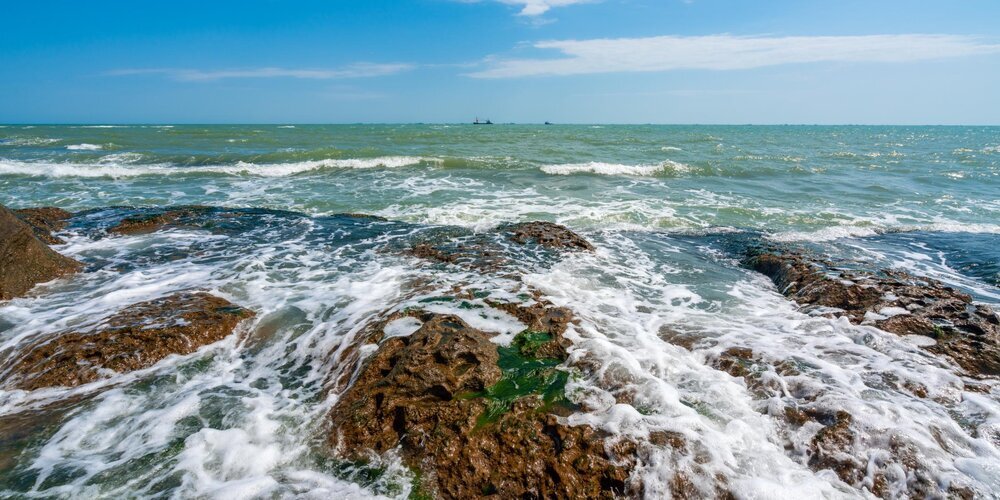Tehran Convention to follow up on Caspian Sea pollution

TEHRAN – Ali Salajeqeh, the head of the Department of Environment, has said the issue of pollution in the Caspian Sea will be followed up on within the framework of the Tehran Convention.
“We hope that we can solve both the problems of water rights and pollution within the framework of the Tehran Convention," ISNA quoted Salajeqeh as saying.
The entrances to the Caspian Sea have been closed by neighboring countries, especially the Volga River, he said, adding: “On the other hand, the amount of precipitation has decreased in the entire Caspian Sea watershed.”
Some statistics say that the Caspian Sea has receded by almost one meter over the past 4-5 years. On average, the Caspian Sea recedes 20 centimeters per year, Salajeqeh noted.
Caspian Sea environment endangered
The Caspian Sea is a unique natural reservoir on our planet. It is the world’s largest land-locked body of water, measuring around 392,600 square kilometers.
The Caspian basin has been isolated for over two million years and hosts a unique ecological system as a result.
Unfortunately, the Sea’s marine environment suffers from an enormous burden of pollution from oil extraction and refining, offshore oil fields, and huge volumes of untreated sewage and industrial waste.
Waste management in the Caspian Sea is on the verge of crisis and seriously threatens the Sea’s environment.
In addition to waste, leachate enters the sea through rivers or rainfall, and because the severity of leachate pollution is very high, it imposes a serious threat to the marine environment.
According to the Department of Environment, the Caspian Sea is in “critical condition” with oil tankers alone dumping over 120,000 tons of pollutants annually. Sewage from cities bordering the sea exacerbates pollution.
Tehran Convention
In 2003, the Caspian Sea littoral states, comprising the Islamic Republic of Iran, the Republic of Azerbaijan, the Republic of Kazakhstan, the Russian Federation, and Turkmenistan, signed the (Tehran) Framework Convention for the Protection of the Marine Environment of the Caspian Sea.
Following ratification by all five Governments of the Caspian littoral states, the Tehran Convention entered into force on the 12th of August 2006.
The objective of this Convention is the protection of the Caspian environment from all sources of pollution including the protection, preservation, restoration, and sustainable and rational use of the biological resources of the Caspian Sea.
The Tehran Convention serves as an umbrella legal instrument that not only aims at protecting the Caspian environment from all sources of pollution but also targets the preservation, restoration, and protection of the Caspian Sea species and habitats.
The Convention includes provisions on the sustainable and rational use of living resources of the Caspian Sea, environmental impact assessment and environmental monitoring, as well as research and development.
Further to the general obligations of the Tehran Convention, the littoral States are required to take all appropriate measures to achieve these objectives individually or jointly and to cooperate with international organizations to that end.
On the sidelines of the 6th summit of the Caspian Sea littoral states which was held in Ashgabat on June 29, President Ebrahim Raisi said the interaction of the Islamic Republic of Iran with its friends and neighbors is original, and this interaction and cooperation not only will lead to economic prosperity and increase the welfare of our nations, but also strengthen regional peace and stability and solve the problems of the Caspian Sea zone merely through its coastal countries.
MG
Leave a Comment